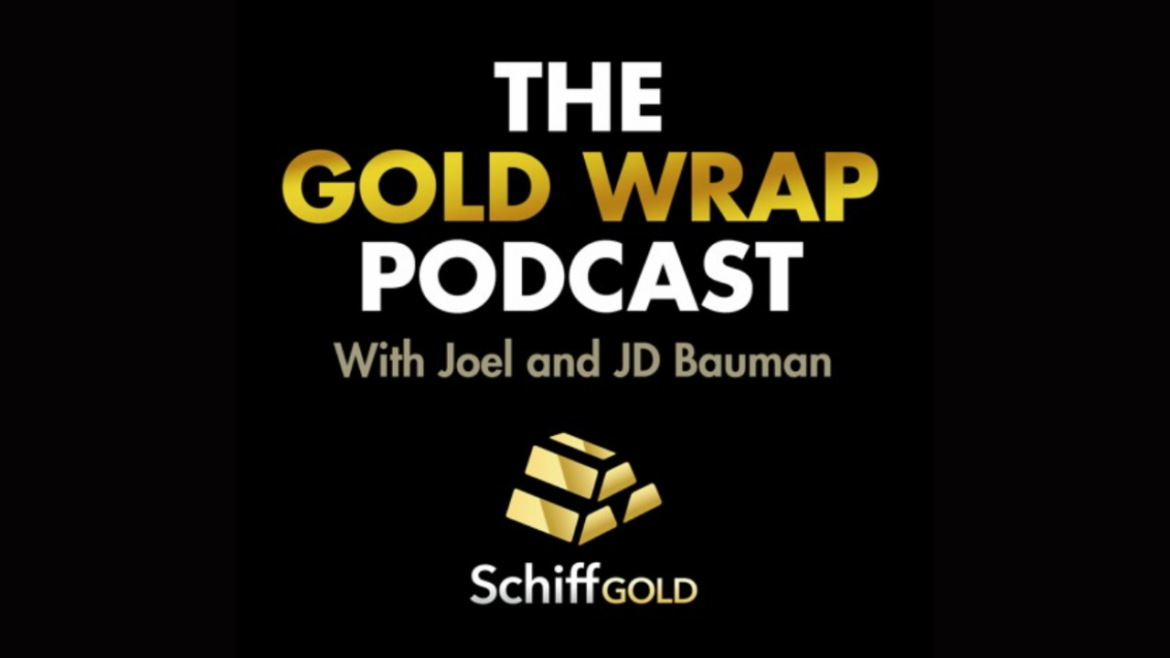Gold has all the potential to go unprecedentedly high. But silver will be gold on
Site:
Precious metals news
Feb 16, 2024 - 12:12:21 PST
The Federal Reserve Board has unveiled the hypothetical scenarios for its annual stress test, a critical evaluation aimed at ensuring the resilience of large banks in the face of severe recessions. This year, for the first time, the Board has introduced four additional hypothetical elements in its "exploratory analysis" to assess various risk factors, although these will not impact bank capital requirements. The stress test will scrutinize the ability of 32 banks to maintain lending operations during a drastic global recession scenario, which includes significant stress in commercial and residential real estate markets and corporate debt markets.
Federal Reserve Bank of Atlanta President Raphael Bostic has signaled a cautious stance on the prospect of cutting interest rates in the near future. His comments come amid speculation and market expectations of a potential rate cut by the Fed, particularly in light of the central bank's upcoming policy meeting in March. The Fed's deliberate approach shows they are looking for clear evidence of inflation's decline towards their objective before considering rate adjustments.
Feb 16, 2024 - 11:48:30 PST
China's gold market kicked off 2024 marking its strongest January on record for wholesale gold demand at 271 tons. The People's Bank of China (PBoC) continued its gold acquisition streak for the 15th consecutive month, adding 10 tons to its reserves, now totaling 2,245 tons. The upcoming Spring Festival is expected to further bolster gold demand due to traditional seasonal buying surges, with predictions of a notable year-over-year growth in 2024 New Year holiday gold consumption.
Despite the seemingly robust indicators of historically low unemployment, strong consumer spending, and solid GDP growth, the US is on a path towards a recession by mid-2024, according to Citi's chief US economist. While recent data, including a blowout January jobs report adding 353,000 jobs, paints an optimistic picture, deeper analysis reveals concerning signs. The labor market, a critical component of economic health, exhibits vulnerabilities such as a decline in the number of hours worked, a reduction in full-time employment, and a hiring freeze in sectors like the restaurant industry. These underlying issues suggest that the surface-level economic strength may be misleading, signaling potential trouble ahead for the US economy.
It’s already looking like it could be a dramatic year for the US dollar, and a good time to check in on a few of the major troubled currencies around the world: the Turkish Lira, Argentine Peso, and Russian Ruble.
JD and Joel discuss this week: why gold is down, Peter Schiff's best takes on Biden's Super Bowl shrinkflation ad, and thoughts about "the best time" to sell gold.
The Arizona Senate committee has given the green light to Senate Bill 1633 (SB1633), which aims to create the Arizona Bullion Depository, a secure facility for storing precious metals. More than just a storage solution, the bill also paves the way for the issuance of state-minted gold and silver coins, alongside a specie-backed transactional currency. This initiative, passed by a narrow 4-3 vote on Feb. 12 by the Senate Finance and Commerce Committee, represents a huge step toward integrating precious metals more directly into the state's economy, offering an alternative to traditional fiat currencies.
Mexican President Andres Manuel Lopez Obrador's recent proposal to ban open-pit mining is causing concern within the mining sector, which is a significant contributor to the country's economy, accounting for 2.5% of its GDP. Industry representatives argue that the proposed ban, aimed at preventing new open-pit mining concessions, could lead to uncertainty and deter investment in this crucial sector. Mexico, being the leading silver producer globally and a significant producer of gold and copper, could face adverse effects from such a policy. Although the proposal is not expected to pass in the short term due to a lack of necessary congressional support, it has been endorsed by Claudia Sheinbaum, the frontrunner to succeed Lopez Obrador, as part of her campaign platform. This endorsement has intensified concerns about the future of mining investments in Mexico.
Oil markets are expected to stabilize in 2024, steering clear of the dramatic fluctuations experienced in previous years. This outlook is shared by two leading industry figures, International Energy Agency Executive Director Fatih Birol and Mercuria Energy Group CEO Marco Dunand. They predict a year of "moderate" oil prices, supported by a slowdown in global demand growth and an increase in supply, particularly from the Americas. Some analysts, including those from JPMorgan Chase & Co., are forecasting potential price surges in the coming months, especially as Brent crude maintains a strong position above $80 a barrel.
The Consumer Price Index (CPI) data for January revealed an unexpected surge, with core prices, excluding food and energy, climbing by 0.4% and surpassing many predictions. This uptick was largely driven by a 0.7% increase in core services, marking the most significant rise since September 2022. However, this spike in the CPI might not fully translate to the Federal Reserve's preferred inflation gauge, the Personal Consumption Expenditures (PCE) index. Key differences between these measures, such as the lower weighting of shelter costs and distinct calculations for medical care services in the PCE, mean inflation rates reported by the core CPI could remain higher than those shown by the core PCE index.
 January Sees U.S. Wholesale Prices Increase, Highlighting Ongoing Inflation Challenges
January Sees U.S. Wholesale Prices Increase, Highlighting Ongoing Inflation ChallengesFeb 16, 2024 - 06:48:54 PST
Wholesale inflation in the U.S. experienced an uptick in January, indicating persistent inflationary pressures within the economy. According to the Labor Department, the producer price index, which measures inflation at the wholesale level before it impacts consumers, increased by 0.3% from December to January, reversing a slight decline from the previous month. Year-over-year, this index saw a moderate rise of 0.9% in January. The ongoing issue of inflation has become a significant concern for the public and is playing a critical role in President Joe Biden's re-election campaign. Despite measures of inflation decreasing from their peak and approaching the Federal Reserve’s target, the average prices remain significantly higher than when President Biden assumed office, with a roughly 19% increase, causing frustration among many Americans.
 Record U.S. Solar & Battery Electric Capacity Additions In 2024 Will Consume Lots Of Silver
Record U.S. Solar & Battery Electric Capacity Additions In 2024 Will Consume Lots Of SilverFebruary 16, 2024
According to the EIA for 2024, the U.S. plans to install double the amount of solar power it did last year and increase total battery storage capacity by 50 percent. More than 80% of new Electric-Generating Capacity added to the U.S. Grid will come from solar and battery storage...
Mike's conversation with Rick Rule delves into the dynamics of market capitalizations, potential recessions, and the impact of taxes and inflation.
Japan has relinquished its position as the world's third-largest economy to Germany, sliding into recession amid challenges such as a depreciating yen and demographic issues like an aging and decreasing population. Despite achieving a 1.9% growth in 2023 in nominal terms (not adjusted for inflation), Japan's Gross Domestic Product (GDP) in dollar terms amounted to $4.2 trillion, falling short of Germany's $4.5 trillion. The depreciation of the yen, which saw nearly a fifth of its value eroded against the dollar over the last two years—including a 7% drop last year alone—has been a critical factor, as it diminishes the value of repatriated earnings from exports.
Gold surpassed the $2,000 mark, following disappointing U.S. retail sales figures that led to a decrease in the dollar value and Treasury yields. This turnaround in the market has been a positive development for investors in gold, with the price of spot gold reaching an intraday high of $2,008.18 per ounce. Despite a slight pullback, gold managed to maintain its position above the $2,000 threshold in a fluctuating market environment. The upcoming release of the U.S. Producer Price Index (PPI) is eagerly awaited, as it is expected to shed light on the current state of inflation and potentially influence future interest rate decisions.
 Florida Real Estate Falls As Homebuyers Deterred by Higher Insurance Costs
Florida Real Estate Falls As Homebuyers Deterred by Higher Insurance CostsFeb 15, 2024 - 12:35:48 PST
Home prices in Florida's southwest coast are dropping, primarily driven by the steep rise in home insurance costs. This insurance crisis has led to a surge in inventory as potential buyers, particularly those looking to purchase winter homes, are deterred by the skyrocketing premiums. The Insurance Information Institute reports a 42% increase in insurance rates last year alone, placing the average insurance cost for Floridian homeowners at $6,000, in stark contrast to the national average of $1,700.
U.S. Treasury Secretary Janet Yellen argues that minor fluctuations should not distract from the significant longer-term trends of decreasing inflation, a strong economy, and rising wages. Speaking at the Detroit Economic Club alongside Michigan Governor Gretchen Whitmer, Yellen expressed confidence in the economic trajectory, labeling market reactions to short-term data as a "tremendous mistake" and urged a focus on the overall downward movement of inflation.
 Banks Under Pressure: Rising Concerns Over Commercial Real Estate Exposures
Banks Under Pressure: Rising Concerns Over Commercial Real Estate ExposuresFeb 15, 2024 - 11:52:23 PST
In late 2023, federal regulators highlighted concerns over approximately two dozen U.S. banks with major concerns over their commercial real estate loan portfolios. These banks, noted for accumulating commercial property loans that exceed three times their total capital, are now under the microscope for their large exposures to commercial real estate sectors such as office buildings and retail spaces.
The yield curve has long been a signal of potential financial market turbulence. But this last year, it missed the mark. Now, there's a shift in the markets. Longer-term yields rising more than shorter-term indicates worsening conditions in liquidity and funding markets that are vital for the market's health.
 Fed's Waller Confirms: U.S. Dollar to Retain Its Global Reserve Currency Status
Fed's Waller Confirms: U.S. Dollar to Retain Its Global Reserve Currency StatusFeb 15, 2024 - 10:53:33 PST
Federal Reserve Governor Christopher Waller emphasized the U.S. dollar will remain the world's reserve currency, despite speculation about its potential decline. In his address at a conference, Waller acknowledged various factors that could threaten the dollar's status, including sanctions against Russia, U.S. political challenges, the emergence of digital assets, and China's promotion of the renminbi. However, he argued that these issues have not significantly impacted the dollar's prominent role in global economics.







